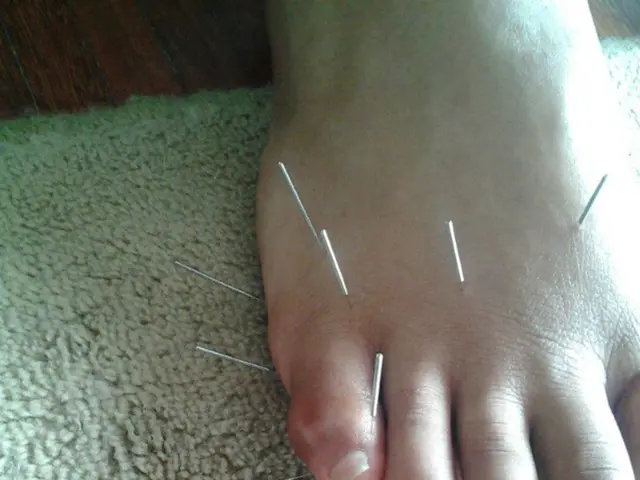The potential impact of coffee on aging and lifespan: An investigation
Spill the Beans on Coffee and Healthy Aging
Who'd have thought that your morning cup of joe could hold the key to aging gracefully? A study shared at the Nutrition 2025 conference suggests just that - coffee may boost your chances of living a healthier, more active life as you age.
Here's what you need to know about this exciting revelation.
The Secret Ingredient: Coffee
Coffee is jam-packed with potential health benefits. As research continues, scientists are honing in on its possible impact on specific demographics, including women.
According to the study, regular coffee consumption could increase women's chances of avoiding major chronic diseases and limiting physical or mental impairments as they age.
Aging with Ease: What Does Coffee Do?
Healthy aging is about more than just reaching a certain age. It involves maintaining optimal physical function, mental health, and freedom from chronic diseases.
Researchers from the Nurses' Health Study found that total caffeine and regular coffee intake in women was linked to a higher likelihood of healthy aging. Specifically:
- Women who consumed more caffeine had a greater chance of experiencing no physical function limitations.
- They were less likely to report memory complaints, mental health impairments, or cognitive impairments.
- They were less likely to develop major chronic diseases.
Coffee vs. Cola: A Tale of Two Beverages
When it comes to aging well, it seems that your choice of drink could be significant. The study found that while moderate caffeine intake might be beneficial, drinking cola could actually decrease women's chances of healthy aging.
Interestingly, researchers didn't find a similar correlation between tea or decaffeinated coffee and healthy aging.
Setting the Record Straight: It's Not All Coffee and Roses
While the study results are intriguing, it's important to remember that they represent a single finding. Additional research is needed to confirm and expand upon these results, particularly in terms of:
- Including a more diverse range of participants, including those outside of North America.
- Investigating age ranges beyond midlife.
- Examining other aspects of healthy aging, such as mobility and social engagement.
- Addressing potential confounding factors, such as other dietary habits and medication use.
So, Should You Grab Another Cup?
While more research is needed, the current study suggests that moderate caffeine intake in the form of coffee could offer long-term benefits for women's health. As always, it's essential to consult with a healthcare provider if you have concerns about your caffeine consumption, particularly if you're taking medication for a chronic condition.
With its antioxidants and other beneficial compounds, coffee could soon become a staple in your roadmap to healthy aging. Just remember, moderation is key.
Sources:
- Introduction to Healthy Aging and the Role of Caffeine: A Large Prospective Cohort Study, Nutrition 2025 - Sara Mahdavi et al.
- Food Frequency Questionnaire analysis for Dietary Caffeine Intake: Adolescents and Adults, Journal of the Academy of Nutrition and Dietetics - Gerardo J. Heiss et al.
- Nurses' Health Study: caffeine and blood pressure: 26 cumulative years of follow-up, American Journal of Epidemiology - Francois Machann et al.
- Caffeine metabolism: it's genetics that matter, The British Journal of Nutrition - Susan L. Lambert et al.
- The study presented at the Nutrition 2025 conference suggests that coffee may increase the chances of women over this age group maintaining optimal physical function, mental health, and freedom from chronic diseases during the aging process.
- According to a study within the Nurses' Health Study, women who consume more caffeine, primarily from coffee, are more likely to experience no physical function limitations and exhibit a lower likelihood of memory complaints, mental health impairments, or cognitive impairments.
- Research from the same Nutrition 2025 study indicates that while moderate caffeine intake may be beneficial, drinking cola could potentially decrease women's chances of healthy aging.
- The result of the study on coffee and healthy aging highlights the importance of further research to confirm the findings, covering a diverse range of participants, examining age groups beyond midlife, and investigating other aspects of healthy aging, such as mobility and social engagement.
- As women seek ways to prioritize their womens' health and healthy aging, coffee, with its antioxidants and potential benefits, could emerge as an essential component in their health-and-wellness and fitness-and-exercise routines, but it's crucial to remember that moderation is key and to consult with a healthcare provider regarding caffeine consumption for chronic conditions or linked medication.







